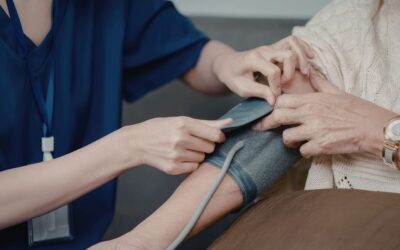
What is incapacity?
It’s often said of a disabled person that “he’s out of his head”. She becomes unable to make informed decisions, take care of herself or manage her property.
Before being declared unfit, a person must be assessed by a doctor and a social worker. Incapacity may be :
- partial or total, depending on the degree of autonomy of the person being assessed.
- temporary or permanent, depending on whether his condition can improve or not.
A need for protection
Because they are vulnerable, incapacitated people need protection. She needs to be supported in her actions and decisions, while retaining as much autonomy as possible. The choice of protection is guided by clinical assessment.
The person’s loved ones can take charge of him or her outside the legal framework. This solution is possible when the person is well cared for and the management of his or her assets is straightforward. If this is not the case, you must apply to the court, which will appoint a legal representative.
The role of the legal representative
He or she acts on behalf of the incapacitated person and in his or her best interests. The legal representative makes decisions and reports on his actions concerning :
- well-being (consent to care, choice of accommodation, requests for services, day-to-day purchases, etc.);
- assets (income management, bill payment, investments, etc.).
Steps to protect a person losing their autonomy
1. Gather your loved ones together and decide what steps to take.
2. Ask for a clinical assessment of the person’s incapacity. To do so, contact a university or non-university integrated health and social services center (CISSS or CIUSSS). This must be the center responsible for services in the region where the person lives.
3. If necessary, check whether you have a mandate of protection (formerly mandate in case of incapacity).
4. If there is one, have it validated. homologated) by a court. The assistance of a notary or lawyer is recommended for this step.
5. If the protection mandate is non-existent or incomplete, ask the court to open a protection plan:
- The tutelle is established in the event of partial or temporary incapacity;
- The curatelle is established in cases of total and permanent incapacity.
The court-appointed tutor or curator becomes the legal representative of the person under protection. If no relative can be designated, the Curateur public assumes this role. A lawyer or the Curateur public can provide more details on the opening of the protection regime.
Please note: by June 2022, the An Act to amend the Civil Code, the Code of Civil Procedure, the Public Curator Act and various provisions respecting the protection of persons comes into force. This The Actwill simplify protection regimes. For more information, visit Curateur public website.
Ensuring your choices are respected
As long as they are fit, people can specify in advance their choices in the event of incapacity. She can draw up, with a notary or in the presence of witnesses :
- His advance medical directives, to accept or refuse certain treatments;
- A protection mandate, to designate the person who will look after your well-being and property.
A problem?
If you become aware of any neglect or abuse of an incapable person, please report it to Curateur public.
To complain about the services of The Public Curator, call Québec Ombudsman. Our services are free and confidential.
Source : https://protecteurducitoyen.qc.ca/fr/conseils/capsules/proche-inapte



